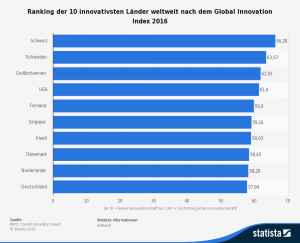To read the full article, please login. The full content of this article and all premium articles is available exclusively for site members.
Site membership is free. If you are an existing user, please login. New users may register below.
These Industries Can Benefit From Augmented Reality
These Industries Can Benefit From Augmented Reality Pokémon GO has introduced millions to the concept of augmented reality (AR), but its potential goes far beyond catching digital monsters on your smartphone. In addition to video games, AR has many practical real-world applications. Here is a look at what AR is and which industries can benefit from the technology. What Is Augmented Reality? Augmented Reality (AR) – visualising concepts (reference: Linkedin) Put simply, augmented reality is the process of overlaying digital images or data on top of real-life physical environments. If you think about the way virtual reality places you in an entirely computer-generated environment, AR stops one step short of that. With AR, digital and computer-generated elements interact with the real physical environment around you. These days, the most common way to experience AR is with smartphone apps that overlay digital elements on top of the world around you as they are viewed through your phone’s camera. Before long, however, AR-enabled headsets and goggles such as Microsoft’s HoloLens will hit the market. It’s certainly a boon for gaming, but here are five other industries that will benefit from AR technology in the near future as well: 1. Real Estate Real estate agents should be all over AR. The technology allows them to showcase properties to potential buyers without being inside the actual home itself. For example, a potential homebuyer visiting a real estate agent could use a phone or tablet to browse and “walk through” homes, using the device as a sort of window into the property. Nothing beats seeing a property first-hand, but AR could immediately cut through the clutter and help buyers quickly narrow their search to only properties they would actually consider. 2. Architecture There are two ways AR can enhance the world of architecture. First, floor plans can be brought to life in 3D using an augmented reality app on a smartphone, tablet or headset. Just by pointing the device at a set of plans, users can view a virtual 3D model of the project. Additionally, AR could be used on-site at architecture projects. For example, if a project is just a quarter or halfway done, architects could use AR to show clients and other interested parties what the project will look like when it’s completed. 3. Healthcare There are a number of ways the healthcare industry can use AR as well. One way is to use the technology when marketing prescription drugs to patients or healthcare decision makers. Patients could use an AR device to scan a variety of drugs, with each giving a full description, instructions and other guidelines for that specific drug. AR could also be used in medical education, giving students an idea of how a procedure or model should look. Yet another use for AR in the healthcare field is prototyping for packaging and medical supplies. This could save significant amounts of time and money versus the old-school method of creating and constantly recreating prototypes. 4. Energy The energy and electrical


